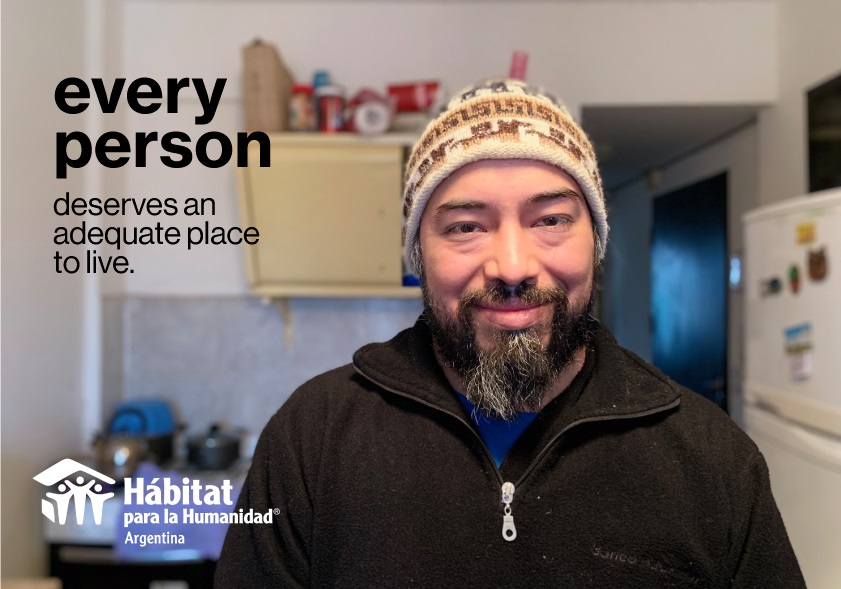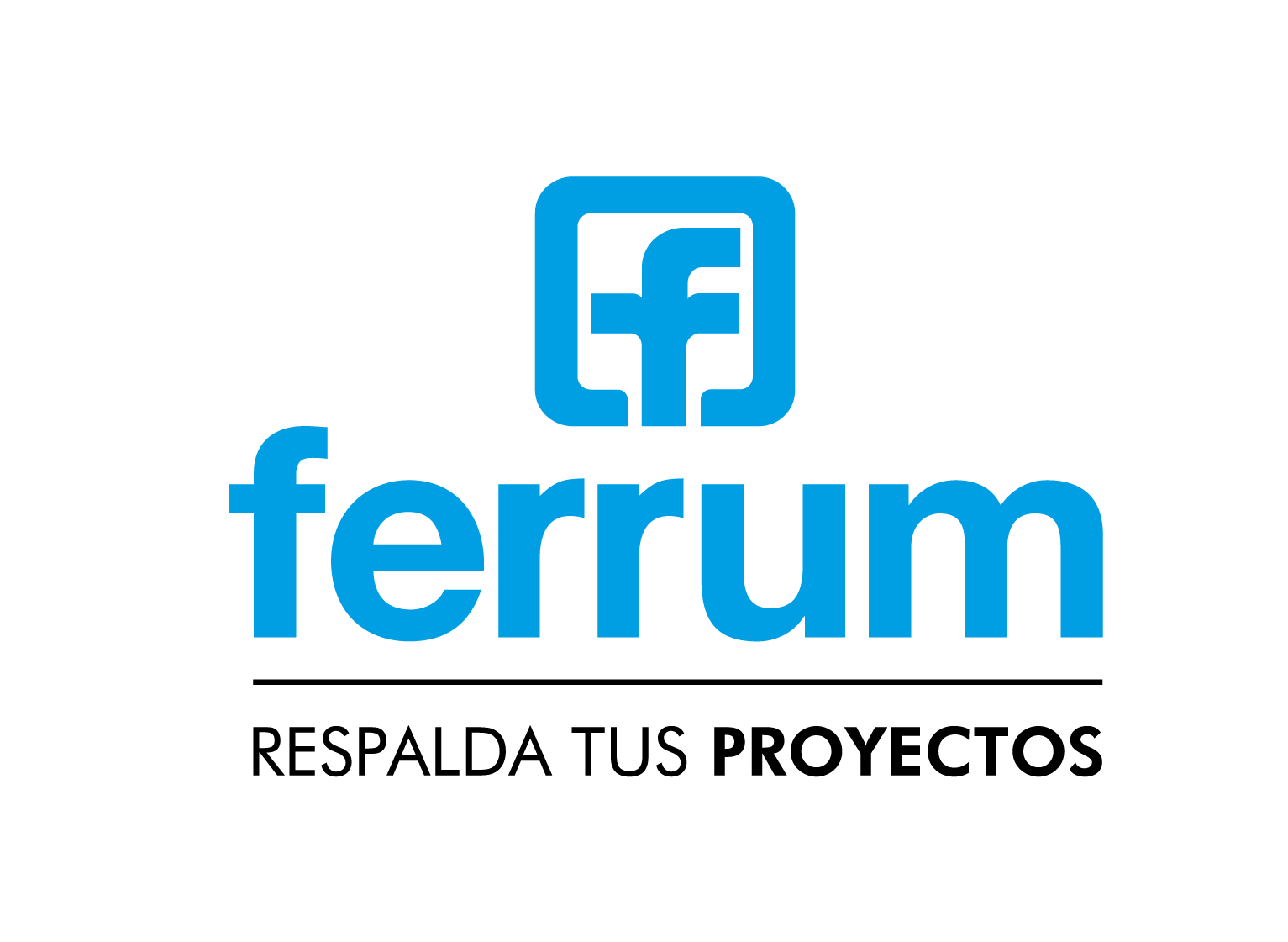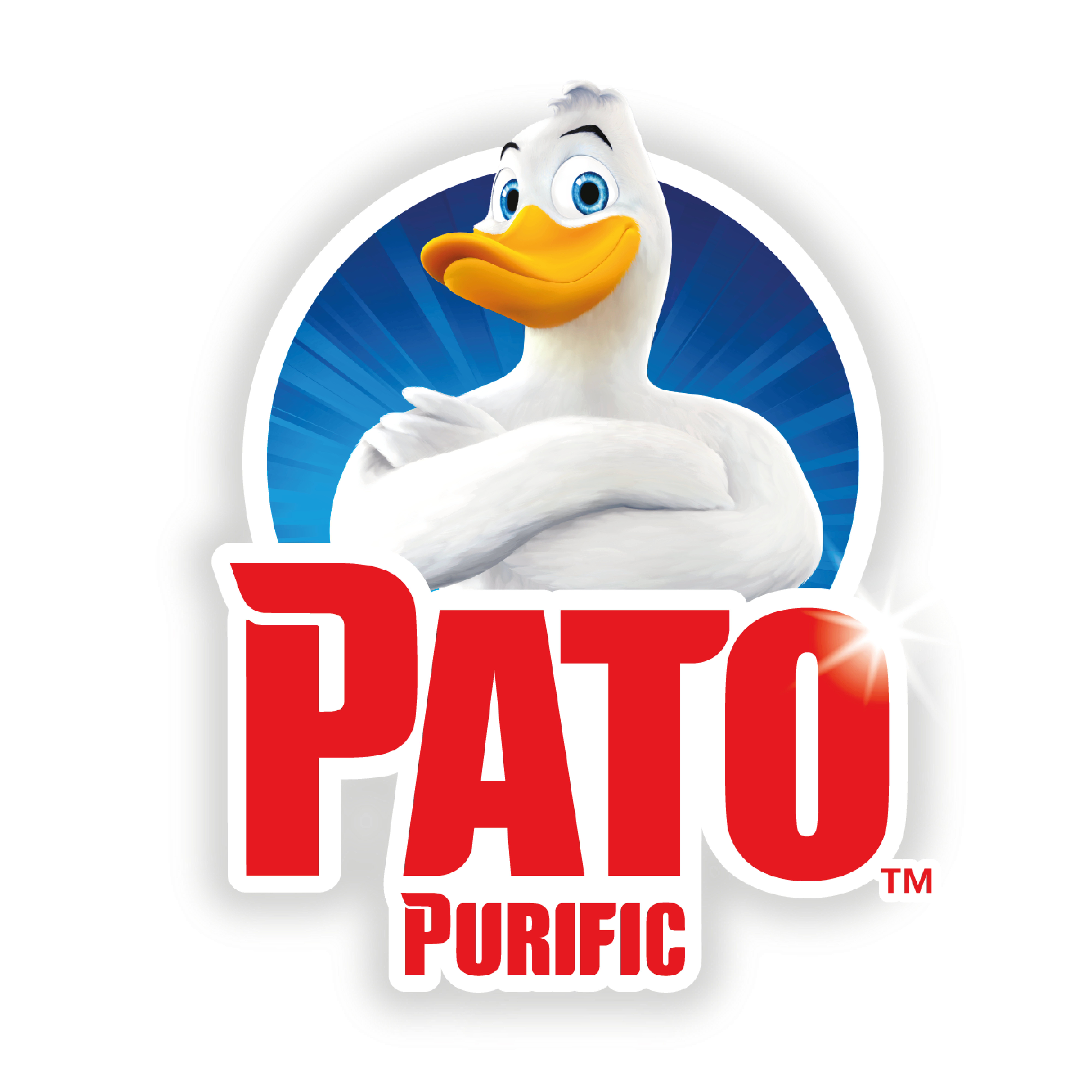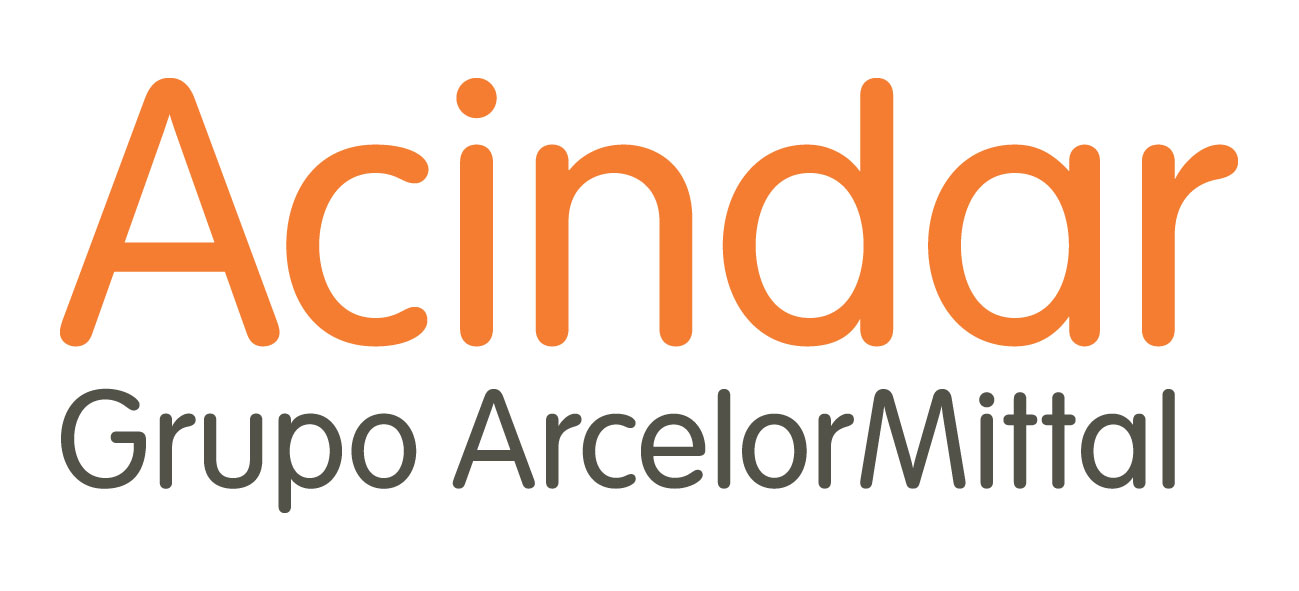Children and Housing
In August, Children’s Day is celebrated and advances made in children`s rights are remembered, including the right of access to adequate housing. The lack of security and affection related to a home and stable housing has direct consequences on the development of minors. Why is it necessary to insist on the right to adequate housing as a means to ensure a child´s well-being?
All children have the right to adequate housing: this is one of their fundamental rights. We know that a house where you can protect yourself and live in the care of your family affects all aspects of your life: a better school and education, improved physical and intellectual performance, and the feeling of security and integrity that being sheltered can provide. The absence of these conditions can and does directly affect how a child will grow and develop.
There are four dimensions in which adequate housing impacts the lives of girls and boys: The first dimension is the quality of the home health environment, and involves questions such as – are there things in the home that can make children sick or hurt them and/or that can promote a child´s physical health? The second dimension is stability, which involves whether or not the family has a stable home and/or is at risk of losing the security provided by that kind of home environment. The third dimension is affordability, and includes the question of whether the family can maintain a healthy and stable home without having to sacrifice other necessities such as food or health care. And the final dimension is the location of the home, which includes the quality and conditions of the community in which the family home is located as well as what services and means of transport are available near the home.
When housing is not adequate, daily living conditions can become dangerous and cause accidents, illnesses, or otherwise prevent recovery from common health problems. For example, asthma, which is one of the most common chronic diseases in children, can be attributed in a high percentage to a house´s environment.
When we talk about the importance of housing for minors it is due to their vulnerability, and we reinforce the importance of providing support and investing to improve their quality of life. The main threats to low-income children are malnutrition and unstable housing, so aid is essential. Children from families who suffer from food insecurity, but receive housing assistance are less likely to have a lower weight typical of those children whose families do not have this support.
The reality is that many families are forced to choose between buying food or paying the rent. Mothers who are affected by housing instability suffer more depression than those with stable housing, and this translates into a decreased ability to interact with their children. This in turn causes greater developmental delay in those children. In addition, the families of mothers with depression face difficulties such as food insecurity because they are unable or have a diminished capacity to work normally.
Adequate housing and a stable home are community-wide concerns that benefit everyone. For example, children with adequate and stable housing attend school more regularly, learn more efficiently, and demonstrate overall increased levels of development. This proves that a stable and affordable home works like a vaccine: it provides resistance and immunity against future threats.
Annual Volunteer Meeting 2019
What do you want to build?
Last Saturday, on July 13th, we had our annual Volunteer meeting including a whole morning of exchange to share our experiences and recent news. We also enjoyed a special workshop presentation on Projects and Goals facilitated by Jorge Inda (an employment coach).
Between rounds of mate and reflections on life, Jorge introduced us to a dynamic group interaction exercise, where each of us was able to investigate different aspects of our personal life and to acquire the additional tools needed to build a volunteer team with greater unity, strength and motivation that contributes both to our organization and to the community. Workshop attendees received a certificate to add to their training background.
This is part of a series of meetings provided by Habitat para la Humanidad Argentina in which we seek to give our volunteers the recognition they deserve for everything they do to support our organization and the families we serve every day.
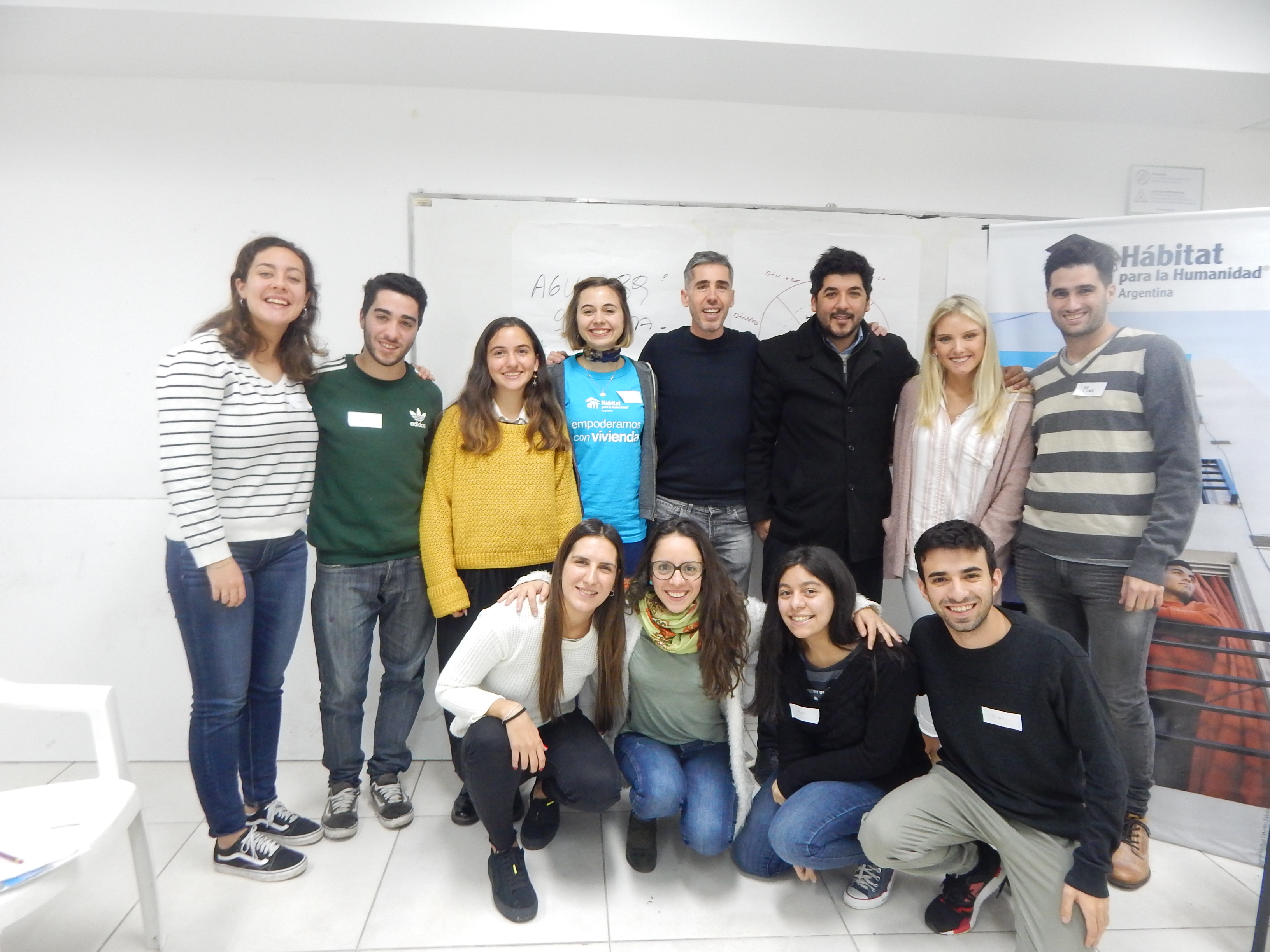
Stories
Rentals: Carlos
In 2018, one of the first tenants of Estela de Esperanzas, Carlos, completed his “step out of informality” as he left the building to rent formally elsewhere.
Carlos remembers his surprise when he first came across Hábitat para la Humanidad Argentina as he had not come across another organization interested in helping him rent formally. He especially appreciates what he learned in the workshops, to be able to understand a Rental Contract and know his rights and responsabilities. “I am so grateful for the 2 years of peace you gave me. It changed my life. I could sleep better, rest better”. Before the end of his contract, he started looking for a new apartment. An aunt recommended him to the owner of a flat, and he was able to sign the contract. He left Estela de Esperanzas with no outstanding payments, and painted the apartment to leave it in perfect condition for the next tenant.
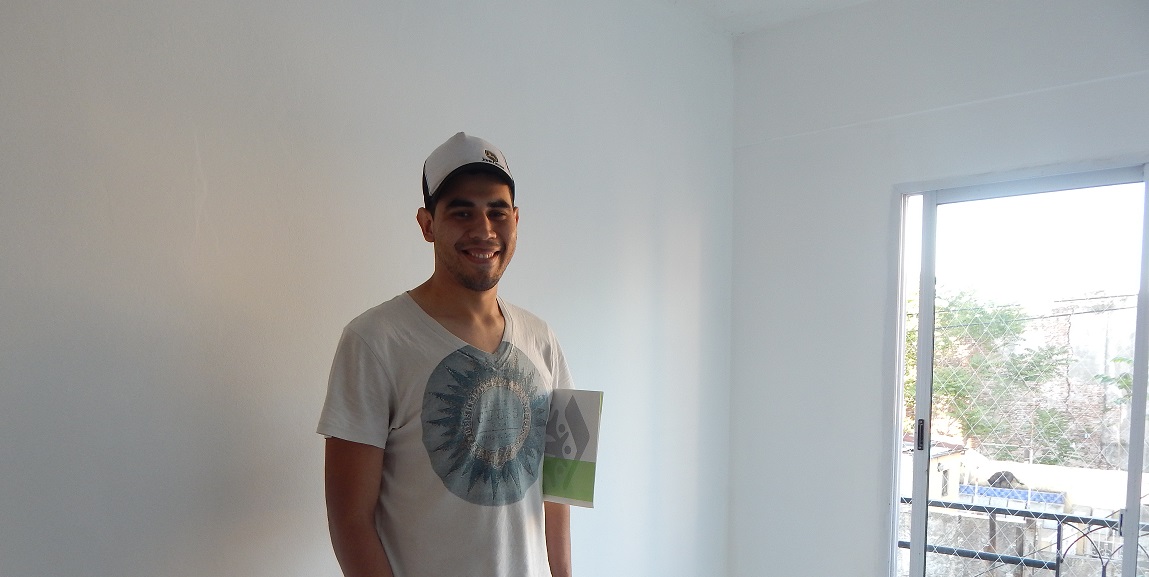
Why I support HPHA

It is a question that I can only answer by thinking about and feeling for the families who cannot access adequate housing and the active commitment of the HPHA professionals who are working to change this reality.
When I first made contact with the HPHA organization a little more than 10 years ago, I started to learn of its mission and its programs. That learning process led me to seek a greater understanding of the access to adequate housing challenge and to get involved with the HPHA cause. Thanks to this journey, I now realize that (without ignoring the non-delegable role of the State in guaranteeing the right to adequate housing) it is only through a commitment by each one of us that real solutions can be found to one of the great social problems of our country. HPHA offers us the possibility of joining with others to work at the individual, family, and collective level to achieve much more than building houses.
Being a part of HPHA means being a part of an ecosystem of people and institutions that work for decent and affordable housing, which creates the opportunities needed for families to develop their full potential. Thank you for the opportunity to be a part of this solution.
Leo Hernández



